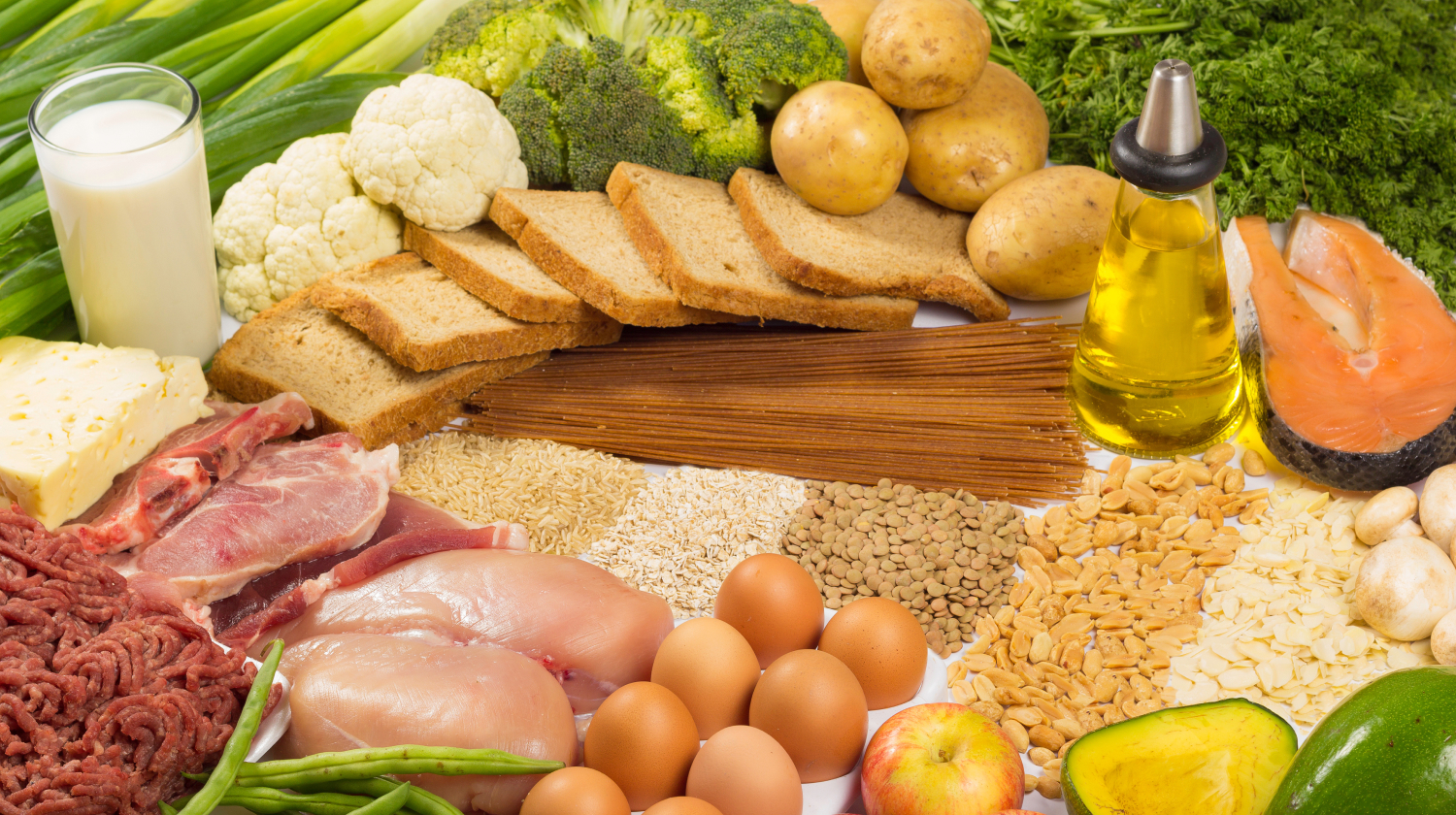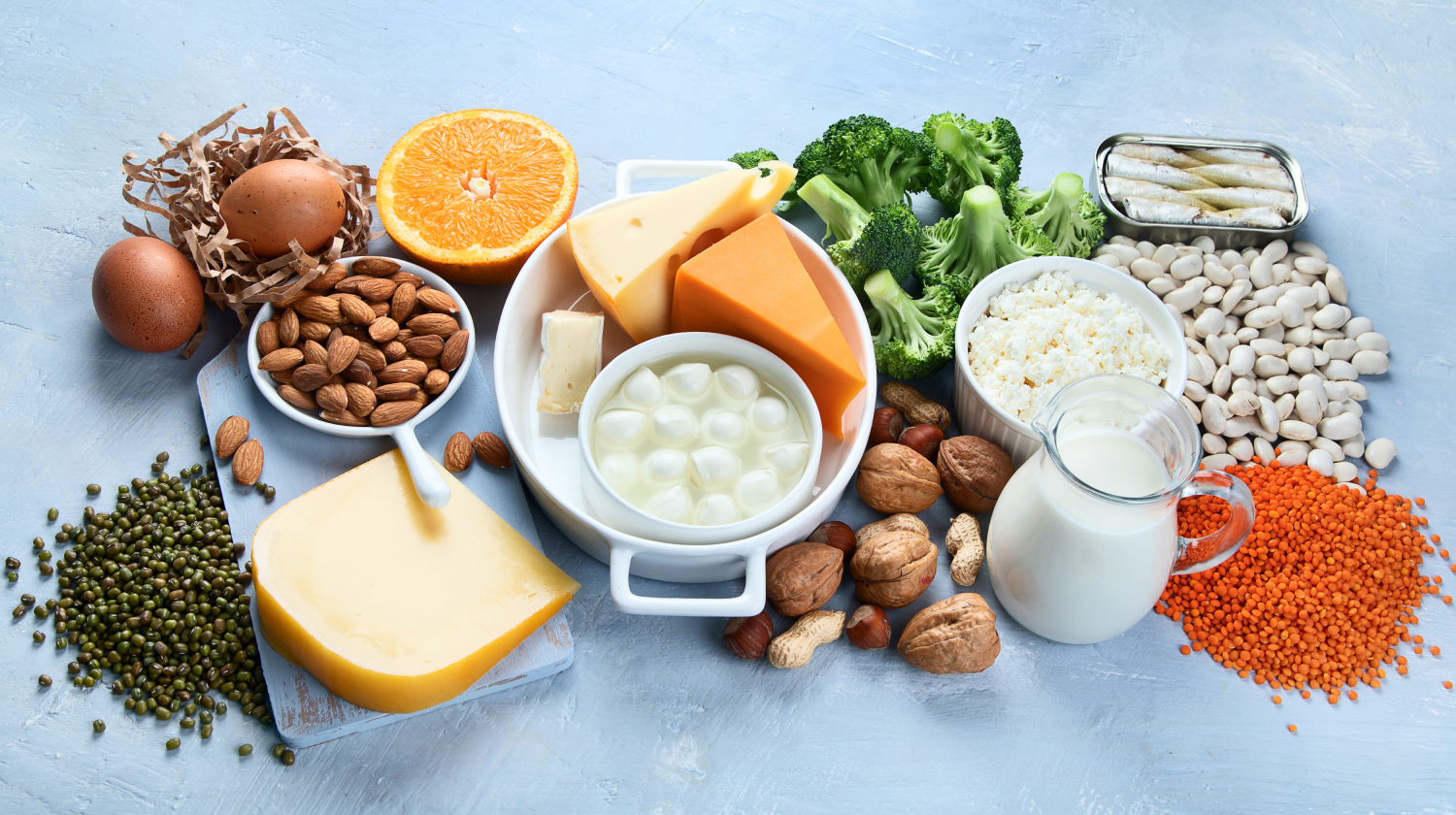 Expert's opinion
Expert's opinion
Expert's opinion
The article is a subjective view on this topic written by writers specializing in medical writing.
It may reflect on a personal journey surrounding struggles with an illness or medical condition, involve product comparisons, diet considerations, or other health-related opinions.
Although the view is entirely that of the writer, it is based on academic experiences and scientific research they have conducted; it is fact-checked by a team of degreed medical experts, and validated by sources attached to the article.
The numbers in parenthesis (1,2,3) will take you to clickable links to related scientific papers.
Intermittent Fasting While Breastfeeding: Is It Safe For You?

Breastfeeding is the most miraculous experience and important connection a mother and baby share. It nourishes the little body and soul of the baby. Therefore, a woman’s breastfeeding period is special and deserves great care about physiological and psychological aspects. The first thing to do is nutrition, of course.
Women who are breastfeeding have an increased calorie expenditure during the production of milk. Their metabolisms speed up, and they need more calories from nutritious sources. But is there any hesitation for specific diets in this term? Can a woman do intermittent fasting, or IF, while breastfeeding, or is it safe? Let’s look for science-based explanations.
Is Intermittent Fasting Safe While Breastfeeding?
Postpartum weight management interventions can play an important role in weight loss. But first, it is necessary to examine the needs of the mother’s body and the physiological[1] and psychological state during lactation.
Understanding The Breastfeeding Period
According to the World Health Organization,[2] breastfeeding for the first six months is crucial for an infant’s lifelong health. Mother milk includes all essential macro- and micronutrients for growth and development. It is also a unique immune booster and protects babies from infections.
Physiological Aspects
During breastfeeding, the mother’s body has a huge production process. Like in pregnancy, the need for energy, nutrients, and water increases during this period. This may result in the mother’s natural weight loss. However, there are a few points that you should consider.
One of the most miraculous things about breast milk is that it adapts the body to provide adequate nutrition to the baby no matter what. Yes, even if you restrict your intake of energy and nutrients to a significant amount, the body continues to produce good-quality milk for the baby, except for the vitamin and mineral content[3] of the breastmilk.
Diet restriction poses a risk not as much to the baby’s health as it does to the mother’s. If the mother does not receive the necessary source for milk production with food, this source will be the mother’s body itself. It is generally recommended to wait until the third month of breastfeeding to begin IF when the milk supply is well established.
Psychological Aspects
Psychologically, women can be highly affected during this period. First, a woman who wants to provide her baby high amount of nutrients with breast milk can start to eat more with this motivation.
Secondly, unfortunately, negative feelings about body weight and body image after giving birth can trigger eating attacks and food cravings in women who have gained weight during pregnancy. It may lead to a vicious weight gain cycle. IF can prevent this cycle.
In addition, the mother who does not like her body image may try to lose weight by following strict diets. However, it also negatively affects the mother’s health.
Intermittent Fasting And Breastfeeding
Intermittent fasting is a dietary eating period restriction for a healthier and more energetic body.
It is generally applied to restrict the extra calorie intake of people who have night-eating attacks or tend to eat more sugar and fatty foods in the evening. It is usually performed by limiting eating in the evening and starting to eat in the morning of the next day.
Many studies have noted significant weight loss results due to the restriction of extra calorie intake; therefore, intermittent fasting is considered an effective method. However, significant changes to the micronutrient contents of breastmilk[4] were discovered during fasting during Ramadan.
Does IF Affect Your Baby?
Researchers have concluded that fasting of women during breastfeeding due to religious reasons[5] such as Ramadan fasting,[6] or general acute calorie restriction does not harm growth and development parameters in babies. Generally healthy, well-nourished mothers can produce a normal amount of milk with short-term calorie restriction during fasting,[7] except for the micronutrient content of breast milk, as stated above.
Safety Tips For Intermittent Fasting During Breastfeeding
You need to be sure that you get your macro- and micronutrients in optimum levels to stay in the safe zone during intermittent fasting. Keep in mind that a woman breastfeeding needs significantly higher amounts of nutrients than a non-lactating woman. It is important not to compare yourself and your diet with others around you who are not lactating.
But on the other hand, don’t let yourself consume too much while you think that you just get your essentials because everything that you consume does not go directly to your milk. Extra food and fluid don’t make your milk extra nutritious or high volume,[8] and you may pile on pounds.
Meeting The Requirements
Macronutrients

A newborn baby receives nearly 800 milliliters of breast milk daily from its mother. It provides approximately 560 kilocalories, and 40% of this calorie comes from a carbohydrate source, lactose. Lactating women[9] may provide 60 grams of glucose from their glucose pool in the body to meet their baby’s carbohydrate needs.
Dietary Guidelines for Americans recommends:[10]
- At least four cups of vegetables and fruits daily.
- Rich fiber consumption from wholegrain products, pulses, beans, and lentils to avoid digestive problems after birth.
- High protein sources, such as eggs, dairy products, lean meat, chicken, fish, pulses, nuts&seeds. But be careful not to consume too much fish or seafood to avoid heavy metal intake.
- Healthy fats such as nuts, seeds, and olive oil.
Micronutrients

The micronutrient[11] needs increase during breastfeeding compared to basic needs. Especially folate, iodine, and choline intake are crucial. You can meet these needs with dark green vegetables, peas, beans, and lentils. Suppose you don’t consume enough dairy products, eggs, and seafood or use iodized table salt. In that case, your iodine intake may not meet the need. You may use supplements, including vitamin B12 and vitamin D, consulting with your doctor.
It is beneficial to get your daily calcium intake[12] from dairy products. Still, if you are vegan or vegetarian, you may add pulses, tofu, dried fruit, and nuts to your diet for calcium intake, as well as enriched non-dairy alternatives.
Fluid Intake

It is suggested that breastfeeding women may increase their daily water intake[13] by 800 milliliters during the first six months and by 650 milliliters during the further period of lactation.
You can analyze your urine color to get an idea about your hydration.
You must drink more water if your urine turns yellow and dark yellow. Also, it is beneficial to limit your caffeine to less than 200 milligrams, which is two eight-ounce cups of coffee intake for your hydration status[14] and your baby’s sleep quality.
Drawbacks Of IF While Breastfeeding
The main disadvantage of intermittent fasting is the risk of causing malnutrition. If you cannot consume the vitamins, minerals, and nutrients you need daily in your eating window, you may feel fatigued and tired due to potential blood sugar or blood pressure changes, and your baby will not get the vitamins and minerals that are missing from your diet. This problem can be partially alleviated by taking a multivitamin[15] with omega-3 fatty acids daily.
If time-restricted feeding causes stress, this may negatively affect your milk supply and psychology.
Alternatives To IF While Breastfeeding
Alternative methods you can use for weight control and burn fat instead of intermittent fasting are:
Intuitive eating or mindful eating: The purpose[16] here is to take as much as your body needs and avoid foods that are not good for the body. It is based on trusting and acting on our satiety and hunger instincts.
The Mediterranean diet: This diet includes complex carbohydrate sources, high fruit and vegetable consumption, consumption of unsaturated fatty acids and seafood, especially olive oil, and reduced consumption of red meat, saturated fat, refined sugar, and trans fat. It can be easily applied at all ages and under all health conditions with its antioxidant[17] effects.
Increasing physical activity: Pilates, yoga, walking, and low-intensity cardio training support healthy breastfeeding moms during the postpartum period. An exercise routine is strongly recommended for both weight control and metabolic activity, recovery of postural disorders, removal of body deformations due to childbirth, and psychological and social support of the mother.
Prevention of obesity in reproductive age: The most important thing is to improve public health with awareness-raising activities to prevent obesity in women of reproductive age, especially those who want to get pregnant or who may develop obesity in the post-partum period.
The Takeaway
You can do intermittent fasting while breastfeeding if intermittent fasting makes you feel good, directs you to a healthy diet, and if you think that you can get enough of the nutrients you need daily, but first, you should consult your doctor and registered dietitian for some guidelines.
+ 17 sources
Health Canal avoids using tertiary references. We have strict sourcing guidelines and rely on peer-reviewed studies, academic researches from medical associations and institutions. To ensure the accuracy of articles in Health Canal, you can read more about the editorial process here
- Nih.gov. (2023). The physiological basis of breastfeeding. [online] Available at: https://www.ncbi.nlm.nih.gov/books/NBK148970/
- World (2019). Breastfeeding. [online] Who.int. Available at: https://www.who.int/health-topics/breastfeeding#tab=tab_1
- Bravi, F., Wiens, F., Decarli, A., Dal Pont, A., Agostoni, C. and Ferraroni, M. (2016). Impact of maternal nutrition on breast-milk composition: a systematic review. The American Journal of Clinical Nutrition, [online] 104(3), pp.646–662. doi:10.3945/ajcn.115.120881.
- Faris, M.A.-I.E. and Al-Holy, M.A. (2014). Implications of Ramadan intermittent fasting on maternal and fetal health and nutritional status: A review. Mediterranean Journal of Nutrition and Metabolism, [online] 7(2), pp.107–118. doi:10.3233/mnm-140011.
- Abolfazl Khoshdel, MD; Mostafa Najafi, MD; Soleiman Kheiri, PhD; Elham Taheri, MD; Jafar Nasiri, MD; Hosein Yousofi, PhD; Amirgholi Jafari7, PhD. (2007). Impact of Maternal Ramadan Fasting on Growth Parameters in Exclusively Breast-fed Infants. [online] Available at: http://www.bioline.org.br/pdf?pe07065
- Hossein Haratipour, Mohammad Bagher Sohrabi, Elham Ghasemi, Atefeh Karimi, Pooneh Zolfaghari, Elahe Yahyaei. (2012). Impact of Maternal Fasting During Ramadan on Growth Parameters of Exclusively Breastfed Infants in Shahroud. [online] Available at: https://jnfh.mums.ac.ir/index.php/50-slideshow/images/icon/journal/images/article_2066_e50b0db19afdac88f944cb9bc5964447.pdf
- Allegaert, K. and Smits, A. (2020). Acute Maternal Fasting or Fluid Abstention Does Not Significantly Affect the Macronutrient Composition of Human Milk: Clinical and Clinical Research Relevance. Children, [online] 7(6), p.60. doi:10.3390/children7060060.
- Ndikom, C.M., Fawole, B. and Ilesanmi, R.E. (2014). Extra fluids for breastfeeding mothers for increasing milk production. Cochrane Database of Systematic Reviews. [online] doi:10.1002/14651858.cd008758.pub2.
- Tigas, S., Sunehag, A. and Haymond, M.W. (2002). Metabolic Adaptation to Feeding and Fasting during Lactation in Humans. The Journal of Clinical Endocrinology & Metabolism, [online] 87(1), pp.302–307. doi:10.1210/jcem.87.1.8178.
- Health.gov. (2022). Dietary Guidelines for Americans | health.gov. [online] Available at: https://health.gov/our-work/nutrition-physical-activity/dietary-guidelines
- Health.gov. (2021). Nutrition During Breastfeeding: How Health Professionals Can Support Healthy Moms and Babies – News & Events | health.gov. [online] Available at: https://health.gov/news/202108/nutrition-during-breastfeeding-how-health-professionals-can-support-healthy-moms-and-babies
- NHS Choices (2023). Dairy and alternatives in your diet. [online] Available at: https://www.nhs.uk/live-well/eat-well/food-types/milk-and-dairy-nutrition/
- Bardosono, S., Morin, C., Guelinckx, I. and Pohan, R. (2017). Pregnant and Breastfeeding Women: Drinking for Two? Annals of Nutrition and Metabolism, [online] 70(Suppl. 1), pp.13–17. doi:10.1159/000462998.
- Mayo Clinic. (2022). What to eat while breastfeeding your baby. [online] Available at: https://www.mayoclinic.org/healthy-lifestyle/infant-and-toddler-health/in-depth/breastfeeding-nutrition/art-20046912
- CDC (2022). Maternal Diet. [online] Centers for Disease Control and Prevention. Available at: https://www.cdc.gov/breastfeeding/breastfeeding-special-circumstances/diet-and-micronutrients/maternal-diet.html
- Grider, H.S., Douglas, S.M. and Raynor, H.A. (2021). The Influence of Mindful Eating and/or Intuitive Eating Approaches on Dietary Intake: A Systematic Review. Journal of the Academy of Nutrition and Dietetics, [online] 121(4), pp.709-727.e1. doi:10.1016/j.jand.2020.10.019.
- Martínez-González, M.A., Salas-Salvadó, J., Estruch, R., Corella, D., Fitó, M. and Ros, E. (2015). Benefits of the Mediterranean Diet: Insights From the PREDIMED Study. Progress in Cardiovascular Diseases, [online] 58(1), pp.50–60. doi:10.1016/j.pcad.2015.04.003.



